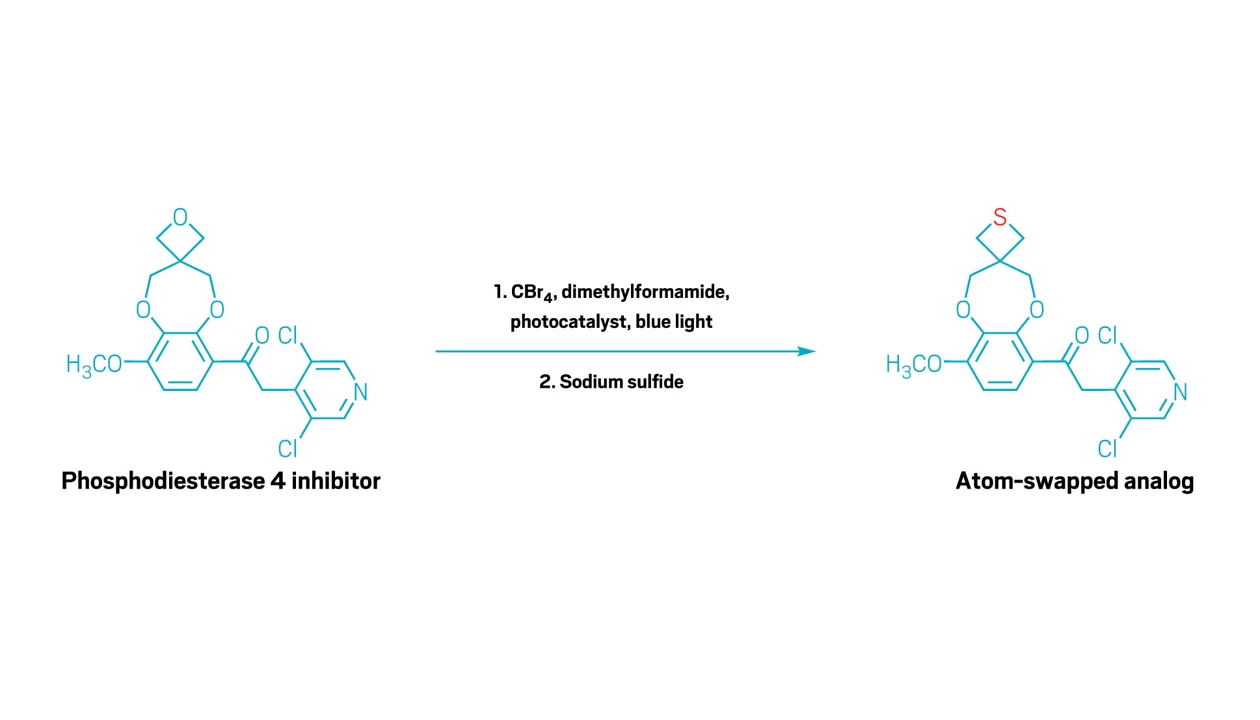They erected safari-style tents for shade and strung hammocks between poles. Supplies were scheduled to arrive every three or four days. They set up a generator to cook meals and power their equipment and hired a crew of locals to…
Blog
-

Cybersecurity firm F5 sinks 12% after disclosing nation-state hack
Pavlo Gonchar | SOPA Images | Lightrocket | Getty Images
U.S. cybersecurity company F5 fell 12% on Thursday after disclosing a system breach in which a “highly sophisticated nation-state threat actor” gained long-term access to some systems.
F5 shares were pacing for the worst day since April 27, 2022, when the stock fell 12.8%.
The company disclosed the breach in a Securities and Exchange Commission filing on Wednesday and said the hack affected its BIG-IP product development environment. F5 said the attacker infiltrated files containing some source code and information on “undisclosed vulnerabilities” in BIG-IP.
The breach was later attributed to state-backed hackers from China, Bloomberg reported, citing people familiar with the matter.
F5, which was made aware of the attack in August, said they have not seen evidence of any new unauthorized activity.
“We have no knowledge of undisclosed critical or remote code vulnerabilities, and we are not aware of active exploitation of any undisclosed F5 vulnerabilities,” F5 said in a statement.
The cybersecurity giant told customers that hackers were in the network for at least 12 months and that the breach used a malware called Brickstorm, according to Bloomberg.
F5 would not confirm the information.
Brickstorm is attributed to a suspected China-nexus threat dubbed UNC5221, Google Threat Intelligence Group said in a blog post. The malware is used for maintaining “long-term stealthy access” and can remain undetected in victim systems for an average of 393 days, according to Mandiant.
The attack prompted an emergency directive from the Cybersecurity and Infrastructure Security Agency on Wednesday, telling all agencies using F5 software or products to apply the latest update.
“The alarming ease with which these vulnerabilities can be exploited by malicious actors demands immediate and decisive action from all federal agencies,” CISA Acting Director Madhu Gottumukkala said. “These same risks extend to any organization using this technology, potentially leading to a catastrophic compromise of critical information systems.”
The UK’s National Cyber Security Centre also issued guidance for the F5 attack, advising customers to install security updates and continue monitoring for threats.
Continue Reading
-

Springboks and All Blacks reignite traditional tours
In the tour’s maiden year, South Africa will host New Zealand in August and September 2026. The All Blacks kick off the tour against the DHL Stormers in Cape Town on Friday, 7 August and take on the…
Continue Reading
-

Trump threatens ‘to go in and kill’ Hamas in Gaza over internal clashes | Donald Trump News
Statement appears to signal about-face from US president, who previously backed Hamas’s crackdown on Gaza gangs.
Published On 16 Oct 2025
United States President Donald Trump has threatened…
Continue Reading
-

US regional bank shares sink on credit worries after fraud disclosures
Stay informed with free updates
Simply sign up to the US banks myFT Digest — delivered directly to your inbox.
Shares in US regional banks fell on Thursday after two lenders disclosed that they were exposed to alleged fraud by borrowers, raising broader concerns about the health of bank loan portfolios.
The disclosures by Western Alliance Bank and Zions Bank follow the recent failures by car parts maker First Brands and auto lender Tricolor, which have left credit investors nursing losses and are under scrutiny from the US Department of Justice.
The KBW regional banking index, which comprises 50 smaller banks, fell more than 5.8 per cent on Thursday, on course for its lowest closing level since June. Shares in Zions had dropped 12 per cent and Western Alliance was down by more than 10 per cent. The two are members of the KBW bank index, which comprises 24 of the country’s leading lenders and was 3.3 per cent lower.
“When credit risk is rising, you just sell off the entire group and you get answers to your questions later,” said Timur Braziler, mid-cap bank analyst at Wells Fargo.
The drop in regional bank stocks helped prompt a move in the wider US stock market, with financials dragging the S&P 500 0.9 per cent lower.
In response to these regional bank worries — as well as the escalation in trade tensions between China and the US — the two-year Treasury yield sank to its lowest level since September 2022. The two-year yield, which moves with interest rate expectations, fell by as much as 0.09 percentage points to a low of 3.41 per cent.
“There was no single obvious catalysing incident [for the two-year move]. There are a variety of different factors that are interrelated that prompted it,” said Jonathan Hill, head of US inflation market strategy at Barclays.
“Part of it has to do with some weakness in regional banks, part of it has to do with trade tensions between the US and China, and part of it has to do with worries about stress in the funding market,” he said.
Utah-based Zions Bank — which has about $89bn in assets — on Wednesday said in regulatory filings that it would take a $60mn provision after it had “identified what it believes to be apparent misrepresentations and contractual default” on “two related commercial and industrial loans” affiliated with two borrowers.
The bank also said it had found “other irregularities with respect to the loans and collateral” and that it had commenced a lawsuit in California against the borrowers.
Separately, Western Alliance disclosed in regulatory filings on Thursday that it had initiated a lawsuit alleging fraud by a borrower “in failing to provide collateral loans in first position, among other claims”.
It is seeking to recover approximately $100mn, according to analysts at Citi.
The bank said on Thursday that it had “evaluated the existing collateral” and believed it covered the obligation. It also said it had “a limited guarantee and full guarantee from two ultra-high net worth individuals under certain circumstances, such as fraud”.
Western Alliance, which has about $87bn in assets, said that its “total criticised assets” — loans that show early signs of weakness — were “lower than they were on June 30, 2025” and affirmed its existing guidance and outlook for the year.
Analysts at Jefferies said the stock market reaction was “overdone” given the exposures of Western Alliance and Zions Bank represented 1.6 per cent and 1.1 per cent of their tangible common equity, respectively.
Shares in Banc of California fell by 8 per cent. The lender, with total assets of $34bn, has minimal exposure to the borrowers in question, according to a review of court documents by Jefferies analysts. They estimate that it will not incur any losses on this due to its senior position in the credit facility.
“The whole industry is being painted by the same brush,” said Catherine Mealor, head of small and mid-cap bank research coverage at KBW. “We are going to have pockets of credit stress as we move into this normalisation period. And so how does that impact the overall multiple that we put on the group?”
While Wall Street banks’ third-quarter results have shown resilient credit quality overall, the collapses of First Brands and Tricolor have raised concerns about lending standards.
“Historically fraud has been very idiosyncratic, very one off,” Braziler said. “And what if we are getting into an environment where more of these nefarious characters bubbled up to the top and fraud becomes a larger part of the conversation? I think that’s really the question at heart here and what investors are trying to figure out.”
Shares in Jefferies, which has exposure to First Brands, were down by more than 9 per cent on Thursday.
Western Alliance declined to comment beyond their filing. Zions did not immediately respond to a request for comment.
Continue Reading
-

Provider Judgment On Cannabis Use During Pregnancy Causes Patient Mistrust
Many patients believe that a majority of health care providers perceive cannabis treatment as harmful and mainly for recreational purposes. Despite this belief among pregnant and expecting mothers, many have still reported using cannabis to…
Continue Reading
-

Lakshya Sen, Satwiksairaj Rankireddy-Chirag Shetty enter quarter-finals
Lakshya Sen and Satwiksairaj Rankireddy-Chirag Shetty, India’s top men’s doubles duo, sailed into the quarter-finals of their respective events at the Denmark Open 2025 badminton tournament in Odense on Thursday.
Competing at the Jyske Bank…
Continue Reading
-

New study finds large fluctuations in sea level occurred throughout the last ice age, a significant shift in understanding of past climate | Newsroom
CORVALLIS, Ore. — Large changes in global sea level, fueled by fluctuations in ice sheet growth and decay, occurred throughout the last ice age, rather than just toward the end of that period, a study publishing this week in the journal Science…
Continue Reading
-
Just a moment…
Just a moment… This request seems a bit unusual, so we need to confirm that you’re human. Please press and hold the button until it turns completely green. Thank you for your cooperation!
Continue Reading

